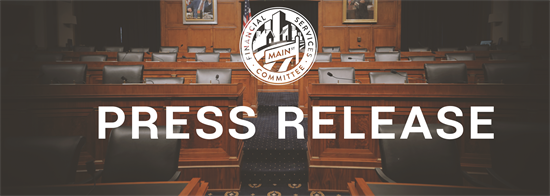Legislative Proposals to Counter Terrorism and Illicit Finance
Washington,
November 29, 2017
The Financial Institutions and Consumer Credit and Terrorism and Illicit Finance Subcommittees held a joint hearing today to discuss two legislative proposals, the “End Banking for Human Traffickers Act of 2017” and the “Counterterrorism and Illicit Finance Act” (CTIF), that will counter human trafficking and illicit finance, as well as improve information sharing. “From the Treasury Department down to local law enforcement, many moving parts are involved in thwarting the funding of terrorist activities and criminal schemes,” said Terrorism and Illicit Finance Subcommittee Chairman Steve Pearce (R-NM). “As the threat of terrorism evolves, so should the regulations that are used to detect and disrupt the illicit financing within our nation’s financial system. I’m pleased to join my colleague, Congressman Luetkemeyer, to propose legislation that modernizes the Bank Secrecy Act and improves our nation’s framework to combat money laundering and terrorist financing. The Bank Secrecy Act provides agencies within the Treasury Department the vital ability to safeguard our financial system from money laundering, terrorist financing, and other illicit uses. It is imperative to the mission of national security that they have the resources needed to detect and disrupt the funding of criminal activity and terroristic acts.” “Human traffickers, cartels, and terrorist organizations exploit the U.S. banking system to finance their operations,” Financial Institutions and Consumer Credit Vice Chairman Keith Rothfus (R-PA) added. “The bills discussed at today’s joint subcommittee hearing are just the beginning of Congress’ work to fix outdated banking laws. Our nation can do a better job fighting back to intercept the money the fuels the spread of terror and crime around the world.” Key Takeaways
Topline Quotes from Witnesses “The proposed change in reporting thresholds would be the most immediately and positively impactful in terms of increasing information usefulness and reducing burden.” --Daniel H. Bley, Executive Vice President and Chief Risk Officer, Webster Bank, on behalf of the Mid-Size Bank Coalition of America “Since the very beginning of the AML regime in 1986, all partners have struggled with how to prove usefulness in order to focus the laws and regulations on the shared ultimate goal---getting critical information into the hands of law enforcement and effectively managing actual risks within financial institutions. … Currently, FinCEN does an admirable job of feedback with the previously mentioned SAR Activity Reviews and other SAR statistics.” --John J. Byrne, President, Condor Consulting, LLC “We support the concept in the draft Counter Terrorism and Illicit Finance Act that would require the Treasury Secretary to set national priorities for our AML/CFT regime and study Treasury’s delegation of examination authority for complex, cross-border institutions that file a significant number of BSA reports.” --William J. Fox, Managing Director, Global Head of Financial Crimes Compliance, Bank of America, on behalf of The Clearing House “Our experience shows corruption isn’t something that just happens in developing countries. Corruption on the scale that we see in our investigations could not happen without the actions of global facilitators. What enables corruption is a financial system that makes it easy to hide and move suspect funds around the world.” --Stefanie Ostfeld, Deputy Head of US Office, Global Witness “We are confronting a pivotal moment in our 48 years of combatting illicit finance under the BSA. As our counter-illicit financing efforts have expanded and become ever more important, they are also increasingly challenged – provoking fundamental questions of effectiveness, cost, roles and responsibilities, and, ultimately, sustainability. The combination of these developments necessitates fundamental reform of the BSA and the expanded anti-money laundering / countering the financing of terrorism (“AML/CFT”) regime it supports.”--Chip Poncy, President and Co-Founder, Financial Integrity Network |


